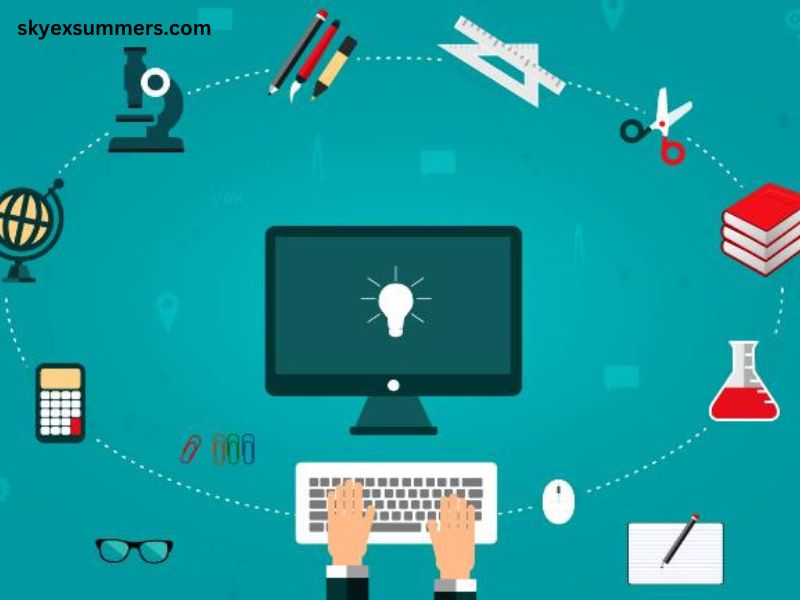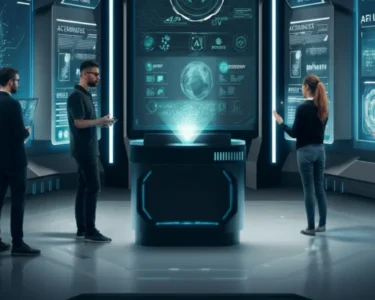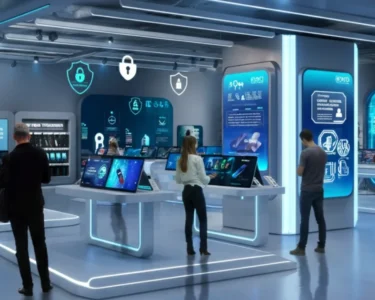In today’s rapidly evolving world, the term “technology” has become an integral part of our daily lives. You have likely heard this word countless times, but have you ever stopped to ponder its true meaning? Technology is a broad and multifaceted concept that encompasses a wide range of tools, processes, and systems designed to enhance our capabilities and improve our quality of life. From the simplest of inventions to the most complex of innovations, technology has shaped the course of human civilization and continues to drive progress across various domains.
Definition of technology
At its core, technology refers to the application of scientific knowledge and practical skills for the development of tools, techniques, and products aimed at solving problems or achieving specific goals. It is the culmination of human ingenuity, creativity, and a relentless pursuit of knowledge. Whether it’s a simple lever or a cutting-edge artificial intelligence system, technology is the product of human intellect and a testament to our ability to manipulate the world around us.
Evolution of technology
The evolution of technology has been a remarkable journey, spanning countless centuries and encompassing numerous breakthroughs and advancements. From the earliest stone tools and the invention of the wheel to the groundbreaking discoveries of electricity and the internet, each technological milestone has built upon the foundations laid by its predecessors. This progression has been driven by human curiosity, necessity, and a desire to push the boundaries of what is possible.
Importance of technology in modern society
In our modern society, technology has become an indispensable part of our daily lives. It permeates every aspect of our existence, from the way we communicate and work to the way we entertain ourselves and access information. The impact of technology on our lives is truly profound, and its importance cannot be overstated. It has revolutionized industries, transformed economies, and reshaped the very fabric of human society.
Different types of technology
Technology encompasses a vast array of disciplines and fields, each with its own unique set of tools, techniques, and applications. Some of the major types of technology include:
- Information and Communication Technology (ICT)
- Biotechnology
- Nanotechnology
- Renewable Energy Technology
- Robotics and Automation
- Transportation Technology
- Medical Technology
- Agricultural Technology
Each of these types of technology has contributed to the advancement of human civilization in its own unique way, addressing specific challenges and enabling new possibilities.
Examples of technology in everyday life
Technology is so deeply ingrained in our daily routines that it often goes unnoticed. From the moment you wake up and check your smartphone for notifications to the time you stream your favorite show on a smart TV before bed, technology is ever-present. Here are just a few examples of how technology touches our lives on a daily basis:
- Smartphones and tablets
- Computers and laptops
- Internet and wireless connectivity
- Smart home devices (e.g., virtual assistants, smart thermostats)
- Wearable technology (e.g., fitness trackers, smartwatches)
- Transportation (e.g., cars, planes, trains)
- Medical devices and equipment
- Household appliances (e.g., microwaves, refrigerators)
These examples merely scratch the surface of the countless ways in which technology has become an integral part of our modern lives.
Impact of technology on various industries
The impact of technology on various industries has been nothing short of transformative. From revolutionizing manufacturing processes to streamlining supply chains, technology has played a pivotal role in driving efficiency, productivity, and innovation across sectors. Here are a few examples of how technology has impacted different industries:
| Industry | Impact of Technology |
|---|---|
| Healthcare | Telemedicine, electronic health records, advanced medical imaging, and robotic surgery have improved patient care and healthcare delivery. |
| Finance | Online banking, mobile payment systems, and automated trading platforms have transformed the financial sector. |
| Education | E-learning platforms, virtual classrooms, and educational apps have made knowledge more accessible and personalized. |
| Retail | E-commerce, inventory management systems, and data analytics have reshaped the retail landscape. |
| Manufacturing | Automation, robotics, and 3D printing have revolutionized production processes and supply chains. |
The examples above illustrate how technology has disrupted traditional business models and opened up new avenues for growth and innovation across various sectors.
Ethical considerations in technology
While technology has brought about countless benefits and advancements, it is essential to consider the ethical implications that accompany its development and use. As technology becomes more powerful and pervasive, it raises important questions about privacy, security, environmental impact, and the potential for misuse or unintended consequences. Some key ethical considerations in technology include:
- Data privacy and protection
- Algorithmic bias and discrimination
- Cybersecurity and the potential for cyberattacks
- Environmental sustainability and the carbon footprint of technology
- The impact of automation on employment and job displacement
- The ethical implications of emerging technologies like artificial intelligence and genetic engineering
As technology continues to advance, it is crucial to strike a balance between innovation and responsible development, ensuring that ethical considerations are at the forefront of technological progress.
Future of technology
The future of technology is both exciting and uncertain. As we stand on the precipice of emerging technologies like quantum computing, advanced artificial intelligence, and nanotechnology, the potential for transformative breakthroughs is immense. However, the pace of technological change also brings with it new challenges and uncertainties.
Some of the key trends and developments that are likely to shape the future of technology include:
- The Internet of Things (IoT) and the interconnectivity of devices
- Advancements in renewable energy and sustainable technology
- The continued growth of artificial intelligence and machine learning
- The rise of virtual and augmented reality technologies
- The development of advanced materials and nanotechnology
- The integration of technology into various aspects of our lives, from healthcare to transportation
As we navigate the future of technology, it is essential to embrace innovation while remaining mindful of its ethical and societal implications. By striking the right balance, we can harness the power of technology to create a better, more sustainable, and equitable world for all.
Conclusion
Technology is a vast and ever-evolving realm that has profoundly impacted our lives in countless ways. From the simplest tools to the most complex systems, technology has been a driving force behind human progress and innovation. As we look to the future, the potential for further technological advancements is both exciting and daunting.
It is crucial to embrace technology while remaining mindful of its ethical and societal implications. By striking the right balance, we can harness the power of technology to create a better, more sustainable, and equitable world for all. The ever-evolving world of technology presents both challenges and opportunities, and it is up to us to navigate this landscape responsibly and with a commitment to progress and innovation.
If you’re interested in learning more about the latest developments in technology and how they might impact your life or business, consider subscribing to our newsletter. Stay informed and ahead of the curve by receiving regular updates and insights from our team of technology experts.



